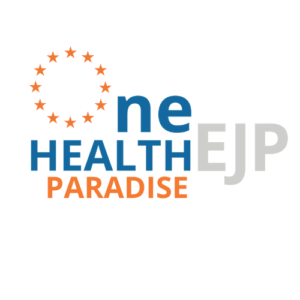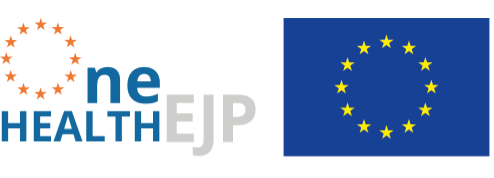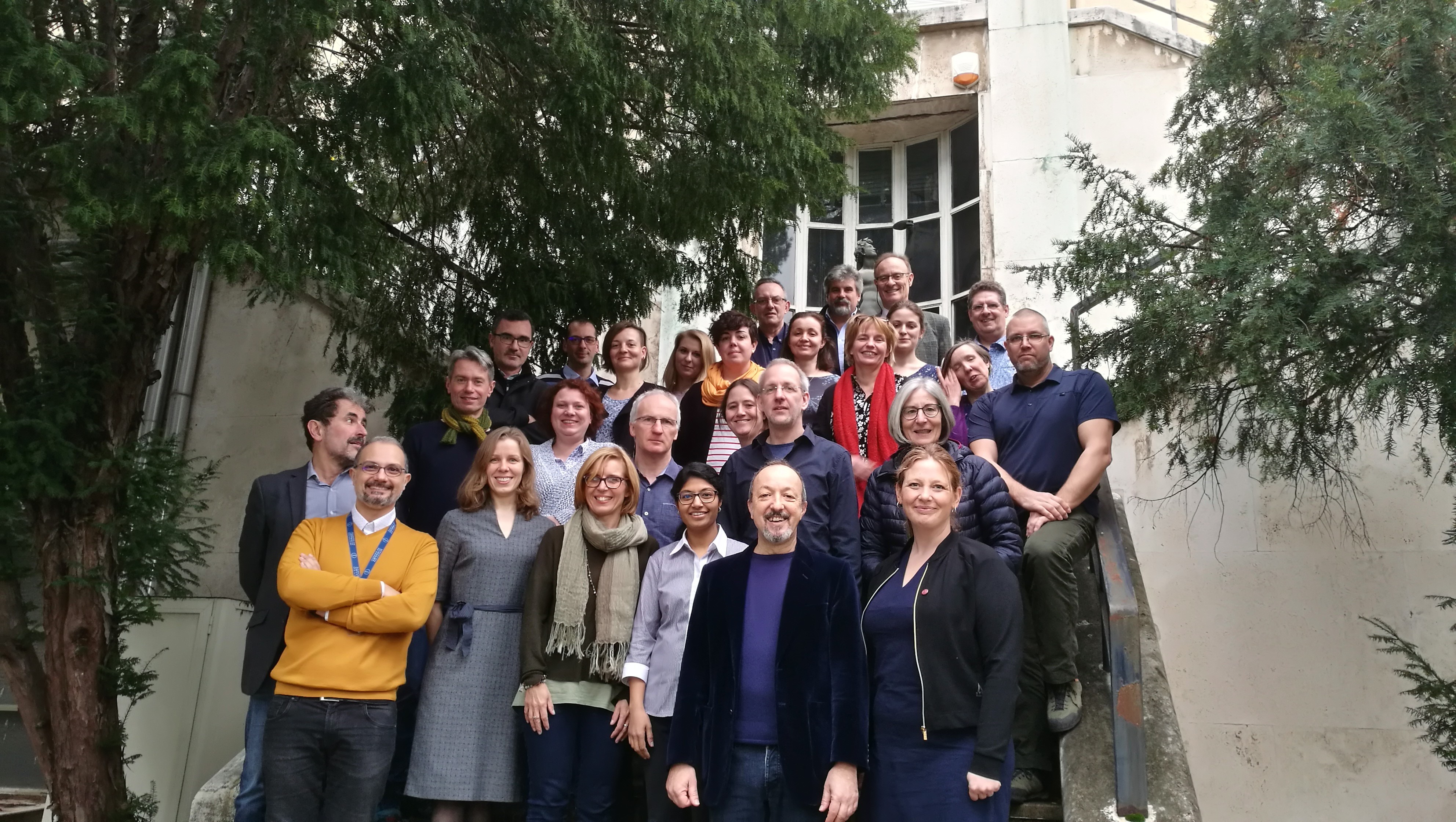Hudcova 296, Brno, Jihovýchod, Czech Republic
Daphne Jackson Road, Guildford, England, United Kingdom
Uppsala, Uppsala län, Sweden
Artillerivej 5, Copenhagen, Region Hovedstaden, Denmark
Seestraße 131 10, Berlin, Berlin, Germany
Antonie van Leeuwenhoeklaan 9, De Bilt, Utrecht, The Netherlands
Avenida da República, Oeiras e São Julião da Barra, Paço de Arcos e Caxias, Área Metropolitana de Lisboa, Portugal
Max-Dohrn-Straße 8, Berlin, Berlin, Germany
14 Rue Pierre et Marie Curie, Maisons-Alfort, Île-de-France, France
Viale Regina Elena, Rome, Lazio, Italy

The Project #PARADISE
| Start: | 1 January 2020 |
| Duration: | 2.5 Years |
| Domain: | Emerging Threats |
| Keywords: | Parasites, genomics, metagenomics, high resolution genotyping, enrichment strategies |
| Contact: | Simone M. Cacciò (ISS) |
PARADISE: Parasite Detection, Isolation and Evaluation
Foodborne parasites (FBPs) are major contributors to the global burden of gastrointestinal disease. In Europe, protozoa of the genera Cryptosporidium and Giardia are particularly relevant, and have been associated with large outbreaks linked to contaminated water and food. Outbreak investigation and source attribution remain difficult, also due to the lack of standardized typing methods. The PARADISE project successfully delivered informative genotyping schemes derived from whole genome sequence (WGS) data and innovative enrichment strategies applicable to food matrices for the zoonotic pathogens Cryptosporidium parvum and Giardia duodenalis.
Project Outputs and Outcomes
The main achievements were:
- The generation of about 130 WGS from C. parvum (humans and ruminants), 50 WGS from G. duodenalis assemblage B (mostly from humans) and about 70 WGS from G. duodenalis assemblage A (humans and other mammals). Comparative genomic studies are progressing and will shed light on the population structure, virulence and evolution of these parasites, and provide insights for future functional studies.
- The applicability of metagenomics approaches for the detection of parasites in various biological, water and food samples was critically evaluated in silico and experimentally. The analyses show that efficient detection can also be achieved in the presence of excess background material of eukaryotic origin (e.g., a vegetable matrix), but that confirmation of the results obtained by k-mer or mapping procedure is essential to avoid false positives.
- These efforts have been paralleled by the refinement of analytical workflows for the analysis of complex data that took into account the specific biology of parasitic pathogens. EFSA and ECDC can have an interest towards this work, as it demonstrates full applicability of genomics and metagenomics approaches to detect and characterize these important foodborne pathogens. Ongoing collaborations with European Union Reference Laboratories for bacterial and viral pathogens will helping fostering the use of WGS for parasitic pathogens
- New multi-locus sequence typing (MLST) schemes for both C. parvum and G. duodenalis assemblage B have been designed and tested on hundreds of isolates from different hosts and different geographic origin. The schemes demonstrated a high discriminatory power and represent valuable tools for outbreak investigations and epidemiological studies. Standard Operating Procedures (SOPs) are available and ring tests among Consortium partners showed efficient implementation of the typing schemes. Adoption of the two MLSTs by Reference Laboratories will address the specific need for robust molecular tying methods recently highlighted by EFSA.
- A post-DNA extraction capture system for Cryptosporidium, based on probes targeting the 18S rDNA and the gp60 genes, have been designed and extensively characterized, and demonstrated to have high sensitivity in inter-laboratory studies. This technique will allow investigation of DNA extracts from samples from outbreaks of unknown aetiology. The pre-DNA enrichment strategies based on nanobody and aptamer technologies culminated in the selection of nanobodies with high specificity towards Giardia These reagents could be used on matrices (food, water) contaminated with low number of parasites, whose detection is relevant for risk assessment.
Project Assets
Klotz, C., Sannella, A.R., Weisz, F., Chaudhry, U., Sroka, J., Tůmová, P., Nohýnková, E., Ignatius, R., Aebischer, T., Betson, M., Troell, K. & Cacciò, S. (2022). Extensive testing of a multi-locus sequence typing scheme for Giardia duodenalis assemblage A confirms its good discriminatory power. Parasites Vectors. 15, 489. DOI: https://doi.org/10.1186/s13071-022-05615-x
Franceschelli, A., Bonadonna, L., Cacciò, S. M., Sannella, A. R., Cintori C., Gargiulo R., Coccia A. M., Paradiso R., Iaconelli M., Briancesco R. and Tripodi A. (2022). An outbreak of cryptosporidiosis associated with drinking water in north-eastern Italy, August 2019: microbiological and environmental investigations. Eurosurveillance. 27(35), 2200038. DOI: https://doi.org/10.2807/1560-7917.ES.2022.27.35.2200038
Chihi, A., O’Brien Andersen, L., Aoun, K., Bouratbine, A., & Stensvold, C. R. (2022). Amplicon-based next-generation sequencing of eukaryotic nuclear ribosomal genes (metabarcoding) for the detection of single-celled parasites in human faecal samples. Parasite epidemiology and control. 17, e00242. DOI: https://doi.org/10.1016/j.parepi.2022.e00242
Franssen F., Janse I., Janssen D., Caccio SM., Vatta P., van der Giessen J., van Passel MWJ. (2021). Mining Public Metagenomes for Environmental Surveillance of Parasites: A Proof of Principle. Frontiers in Microbiology. 12:622356. DOI: https://doi.org/10.3389/fmicb.2021.622356
Stensvold, CR., Jirků-Pomajbíková, K., Tams, KW., Jokelainen, P., Berg, RPKD., Marving, E., Petersen, Randi F., Andersen, L O’Brien., Angen, Ø., Nielsen, HV. (2021). Parasitic Intestinal Protists of Zoonotic Relevance Detected in Pigs by Metabarcoding and Real-Time PCR. Microorganisms. 9, 1189. DOI: https://doi.org/10.3390/microorganisms9061189
Belkessa, S., Thomas-Lopez, D., Houali, K., Ghalmi, F., Stensvold, C R. (2021). Molecular Characterization of Giardia duodenalis in Children and Adults Sampled in Algeria. Microorganisms. 9 (1), 54. DOI: https://doi.org/10.3390/microorganisms9010054
Lopez, T., Müller, L., Vestergaard, LS., Christoffersen, M., Andersen, A., Jokelainen, P., Agerholm, JS., Stensvold, CR. (2020) Veterinary Students Have A Higher Risk Of Contracting Cryptosporidiosis When Calves With High Fecal Cryptosporidium Loads Are Used For Fetotomy Exercises. Applied and Environmental Microbiology. DOI: https://doi.org/10.1128/AEM.01250-20




